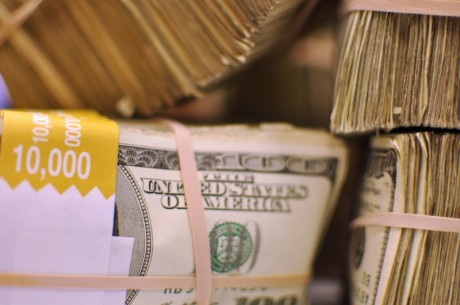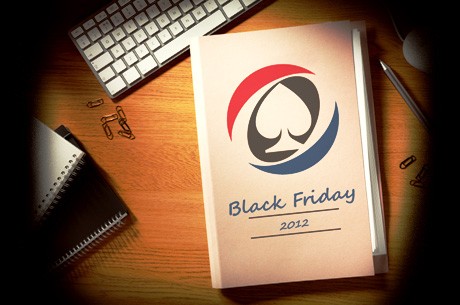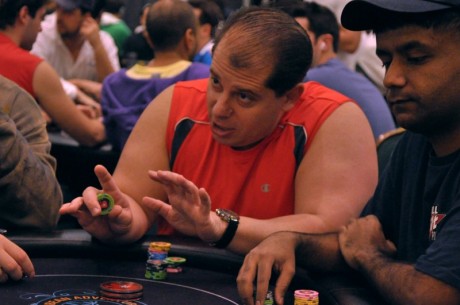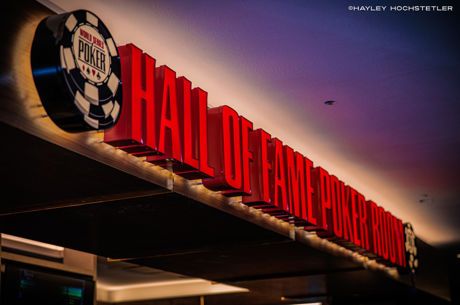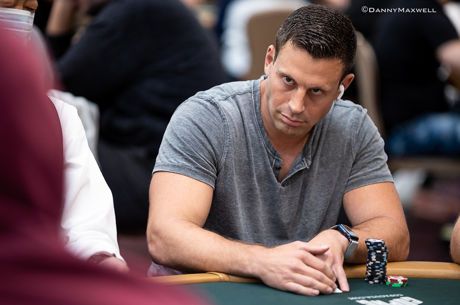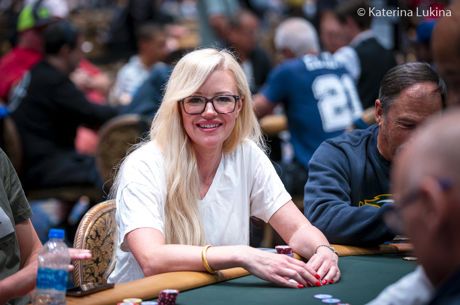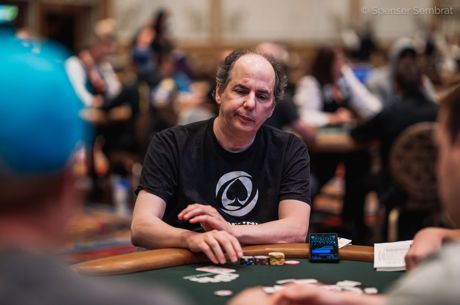PokerNews Op-Ed: The Savageness of Complaining
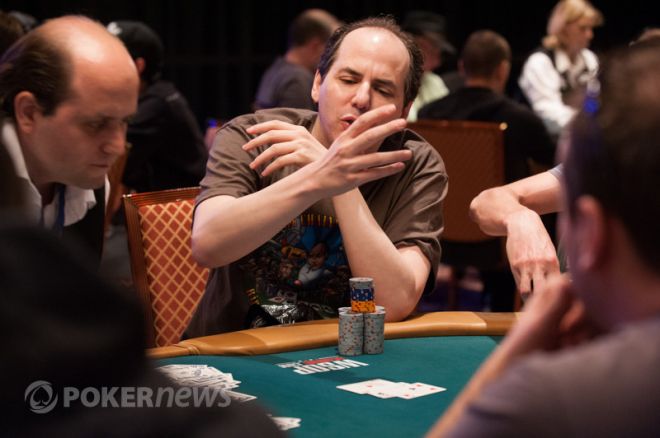
I don��t consider myself a complainer. Instead, I��m more the bite-your-tongue and bide-your-time type of guy. However, when I do find it necessary to voice my opinion, I choose my fights carefully and attempt to express my point in the most efficient and respectful way possible. Unfortunately, not everyone takes the same line; in fact, oftentimes I��m left shaking my head at the line some poker players take to get their point across.
This past week I saw one such situation unfold when poker pro Allen Kessler, also known as ��Chainsaw�� and ��Complainsaw��, saw fit to register a complaint to Tournament Director Matt Savage at World Poker Tour Montreal. The seemingly innocuous situation quickly evolved into a heated debate about whether or not both sides had acted appropriately. Was Kessler right to take his complaints to a public forum? Did Savage respond accordingly? Does Kessler, who consistently complains, have a voice that'd be heard? Everyone had his or her own thoughts on the matter, including myself; though mine came in the form of a question �� what's the most effective way to register a complaint in poker?
In the case of Kessler, he felt social media was the way to go, an option that can't be ignored in this day and age. ��I brought up these issues on Twitter in a professional, factual manner. Several other pros agreed with my posts and in fact retweeted them,�� Kessler said in a Facebook post telling his side of the story where he took issue with currency exchange rates for Americans (they were supposedly told one thing and met with another); structure glitches; and the racing off chips without players present.
I know Kessler and have seen him on the circuit dozens of times. As such, I can attest that he is a notorious complainer. With that said, I must also admit that more times than not his grievances are reasonable. As a matter of fact, I'm confident saying that he's played a crucial role in bettering the game, especially the structures of various tournaments (there's no one else I'd trust more in that regard). In the instance of the WPT Montreal, I can understand his frustration with the currency issue and the racing off of chips; the former a betrayal of players�� trust and the latter leading to gross negligence (there was a considerable number of extra chips given during a color-up, but fortunately an honest player caught the error). As far as the structure was concerned, that��s what ultimately sparked the whole debacle as Savage tweeted the following:
I'll start taking all tournament structure advice from @AllenKessler the DAY I retire! #ThatsAPromise
— Matt Savage (@SavagePoker)
After reading Savages�� tweet, and discovering that the renowned tournament director had blocked him, Kessler continued to take to Twitter:
Lol @SavagePoker is way out of line with comments about me on twitter. I respond, so he blocks me. Whatever.
— Allen Kessler (@AllenKessler)
I guess @SavagePoker will block @realcharder30 @Doc_Sands @marcandre_fdawg since they all agreed that the structure wpt Montreal was flawed
— Allen Kessler (@AllenKessler)
@Adzizzy he can do his job better. Listen to players who've played 100 main events
— Allen Kessler (@AllenKessler)
I��m not writing this to get into the validity of Kessler��s complaints �� which have been discussed extensively in the poker community �� but rather the effectiveness of his method of delivery (For the record I think he was right, but I understand why the changes weren't instituted immediately). I��ve said for years that while social media, especially Twitter, can be an incredibly effective marketing tool, it��s an improper forum to both communicate effectively and air personal grievances.
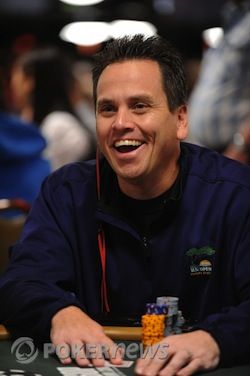
While Kessler has been singled out in this piece as the driving force between the latest fiasco, it��s important to remember that he represents a whole demographic of nitpickers and complainers, many who act before they think, that have permeated the poker world for years. With that said, I think Jay ��WhoJedi�� Newnum said it best when he posted on Kessler��s Facebook wall: ��If you would have simply contacted Matt [Savage] directly and privately instead of posting on Twitter over and over, you would have got the response you might have expected. Quit trying to make everything a huge issue in a public environment and you will find that your continual suggestion might be taken more seriously.��
I think Newnum, who is a social media guru (he runs his own company) offers some great advice in his simple response:
Contact People Directly & Privately
Tournament Directors like Savage and the World Series of Poker's Jack Effel are active tweeters and interact with both regular and famous players on a regular basis. The benefits of this are twofold as it allows the TDs to gather feedback on their events while publicly providing beneficial information, while players have their voices heard and receive a quick response. Want to know if there's late registration for a tournament? How about when the dinner break is? Twitter is a viable option to find an answer.
However, if you wish to have either a lengthy and meaningful conversation or register a complaint and think you deserve a response longer than 140 characters, then you need to choose a different route. As Newnum suggested, Kessler should contacted Savage privately, be it a direct message or a well-thought out email laying out his concerns. Even though Kessler didn't necessarily call out Savage, it's important to remember that criticizing, even if it is constructive criticism, in a public forum like Twitter is a risk. The critic might be heard and taken seriously, but more times than not they'll be immediately ostracized and create a conflict.
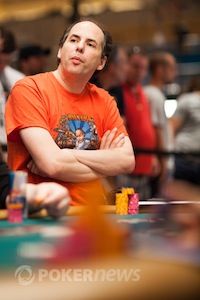
Had Kessler not received a response after attempting to reach Savage privately, then I would have no problems with him escalating to a public forum like TwoPlusTwo or a blog. I especially like the latter option as it gives the writer an opportunity to express his or her qualms in their own personal forum while giving readers the opportunity to read it or not. Daniel Negreanu, Doyle Brunson and Matt Glantz are great examples of this. My advice to Allen�� start a blog where you can sound off on anything and everything you want. Those who don��t care won��t read it, and those who are interested will (I��d be in the latter camp).
Quit Trying to Make Everything a Huge Issue
��Matt's response however was totally unprofessional,�� Kessler argued on Facebook. ��Rather than address these issues and offer ways to improve upon them next event, he resorted to name calling and insults via twitter. Then, he unfollowed me and blocked me from seeing his Twitter posts. This is not the way a representative of the World Poker Tour should address one of its best customers.��
I agree that this was not an ideal reaction by a representative of the WPT like Savage. Kessler is a loyal customer, and while he can be a lot to handle at times, he deserves to be treated as such. Had I been in Savage��s shoes, I��d have simply tweeted something like: ��@AllenKessler I hear your concerns & would like to talk to you about them. Let's have a conversation in person or via email to discuss.�� It��s a professional response, respectful in nature and subtly informs him that you don��t wish to have the discussion in public. Not only that, you��d be justified in ignoring him on Twitter without insulting the man as you��ve clearly laid put his options for a response.
Instead, Savage opted to take a jab at Kessler and block him, which sent Kessler into a frenzy. He proceeded to relentlessly criticize and pen his frustrations for all to see. I can understand his reaction. Had I been in his shoes I��d have been upset too; however, cooler heads prevail. By trying to make Savages�� reaction an even bigger issue in a public forum just added fuel to the fire, and is often the case in those situations, the man with the gas can is the one who wound up getting burned. In other words, Kessler accomplished nothing while doing more damage to his reputation than Savage's.
Is crusading against Savage really worth it? If so, then do more than tweet �� maybe write a letter to his superiors. If it��s not worth the effort to do that, then it��s not worth riffling your feathers about on Twitter. Be the bigger man, walk away, and remember to pick your fights carefully.
Make It So Your Suggestions Are Taken Seriously
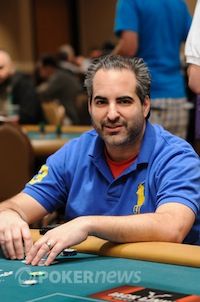
If you complain too much, people going to lose respect for you �� it's as simple as that. What��s worse, those who complain, are subsequently appeased, and continue to complain, either about the same matter or a new one, will find it harder and harder to earn that respect back. That��s not to say they��re not redeemable, it��ll just take longer for people to take you seriously again.
Once there, you��ll find your suggestions carry more weight and people will listen to you. Not only that, but they may even seek you out for your advice and wisdom. The aforementioned Glantz, who is friends with Kessler, is a great example of this. The man is one of the most respected players in poker because of his opinions. Does he complain? Not really �� it��s more offering the occasional observation and recommendation. Because he does it in a subtle and tactful manner, people listen. For instance, here��s what he said about the Kessler/Savage situation:
Unproductive twitter bashing of proven Tourn Directors & now a twitter fight between a poker player & another poker player's mom. #sad
— Matt Glantz (@MattGlantz)
Short, simple and to the point. He expresses his displeasure and leaves it at that. If you like to carp on Twitter, take note as that��s how it��s done.
In closing let me say that I think Kessler, who meant well with his recommendations for WPT Montreal, is highly intelligent and his wisdom has and will benefit the poker world. However, before that can happen, he and players like him need to learn respect, patience and how to properly communicate. To Allen, I love poker characters and you certainly are one. I respect your opinions and am always curious as to what you have to say, but as Shane Schleger tweeted:
@AllenKessler Allen, it's not cool to have these long drawn out twitter exchanges about bullshit no one cares about. #BoutToUnfollowAgain
— Shane Schleger (@ShaneSchleger)
Again, this wasn��t so much about Kessler and Savage as it is about general complaining in poker... especially on Twitter. If you don��t like something about a poker tournament, then don��t play, but if you must complain, at least do the proper, professional way.
Get all the latest PokerNews updates on your social media outlets. Follow us on Twitter and like us on Facebook now!

